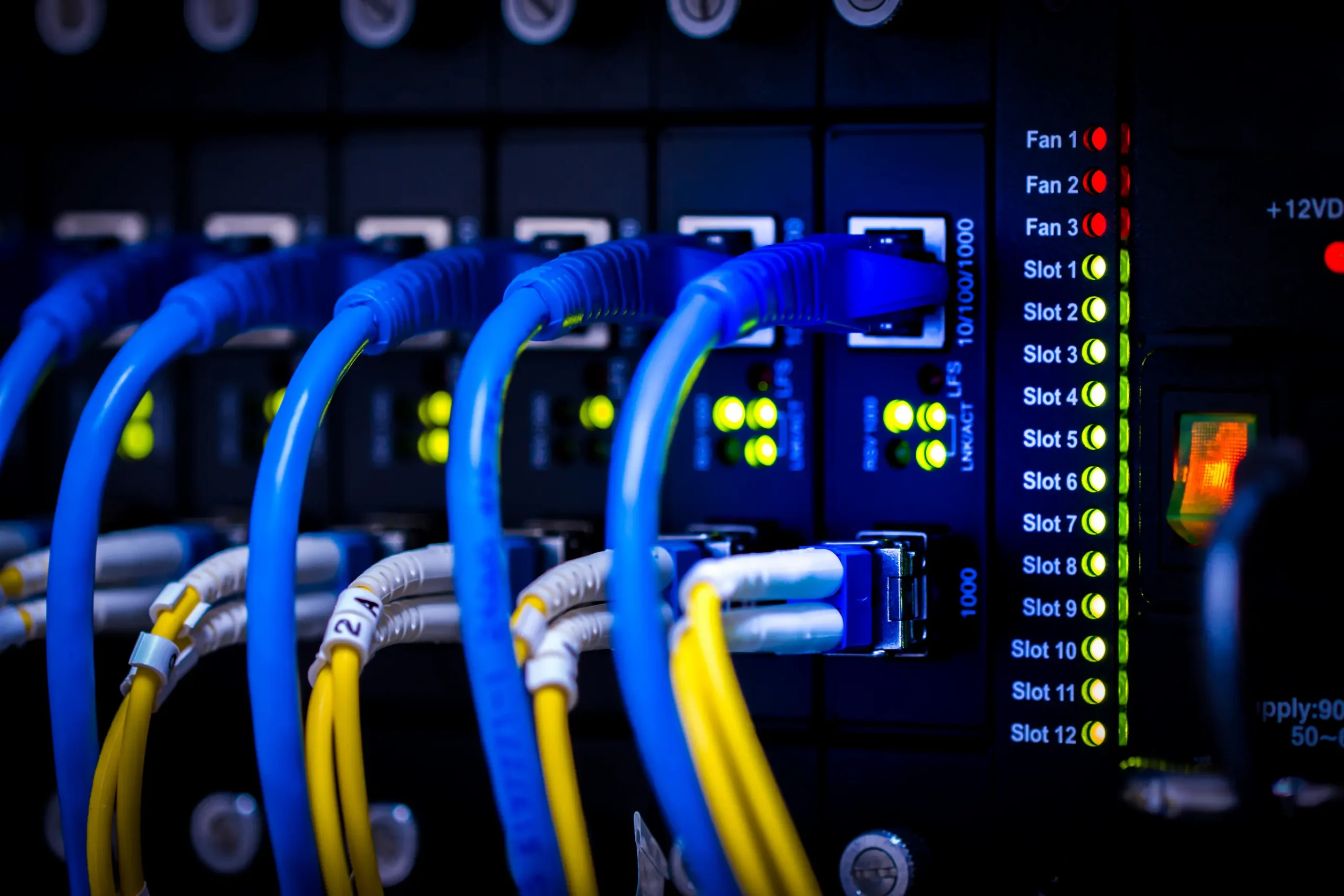Communications security is an important issue for companies and users in the digitalized world in which we live. Information protection becomes even more critical in the field of fiber optic communications, where the speed and capacity of data transmission are unparalleled. In this blog, we will take an in-depth look at security measures for fiber optic communications, examining different strategies and technologies to ensure that data transmitted over this advanced infrastructure is intact and confidential.
Fiber optics has revolutionized modern communication because it can transmit large volumes of information at ultra-fast speeds. However, speed and efficiency present security challenges. It is important to ensure that data transmitted over fiber optic networks is protected from threats such as interception, tampering and unauthorized access.
Security becomes a priority in this context. Strategies and technologies, such as data encryption and user and device authentication, are key to protecting fiber optic communications. Working with trusted service providers such as Ufinet allows us to offer specialized solutions to address the specific security challenges of each organization.
The blog will address security measures to protect fiber optic communications , highlighting Ufinet’s important role in this area.
Ufinet stands out as a trusted partner in protecting crucial communications in the digital age, offering advanced security solutions and collaborating in the development of industry security standards.
Data encryption in fiber optic networks
Data encryption in fiber optic networks is an important step in ensuring privacy and security of communications. Protecting information transmitted over fiber optic networks is essential as the world becomes increasingly digital.
With its high speed and data transmission capacity, optical fiber has become a preferred choice for the transmission of sensitive data. However, if proper security precautions are not taken, light signals transmitted through fiber optics can be intercepted due to their nature.
Fiber optics has become a preferred choice for the transmission of sensitive data due to its high speed and data transmission capacity. However, due to its nature, light signals transmitted through optical fiber can be intercepted if proper security precautions are not taken.
Encryption services in fiber-optic networks will be further adapted and strengthened in the future. With the constant increase in cyber threats, robust and up-to-date encryption systems are essential to protect sensitive data.
In addition, advances in technologies such as quantum cryptography will benefit data encryption in fiber optic networks. The fundamentals of quantum physics are used in quantum cryptography to provide even greater security in communications. In the future, this will provide new opportunities to protect data transmitted over fiber optic networks.

User and device authentication in fiber optic networks
In fiber optic networks , user and device authentication is essential to ensure the security and protection of communications. In an increasingly interconnected world, where sensitive information is transmitted over these networks, it is valuable to implement reliable authentication measures.
With its high speed and data transmission capacity, optical fiber has been widely used in a variety of industries. However, it is necessary to implement reliable authentication mechanisms to ensure that only authorized users and devices have access to the network.
Password-based authentication is one of the most common forms of authentication in fiber-optic networks. To access the network, users and devices must provide distinct credentials, such as usernames and passwords. To prevent unauthorized access, these credentials must be kept secure and updated frequently.
In the future, more advanced technologies such as biometric authentication, along with password-based authentication, are expected to be implemented to verify the identity of users and devices. This will increase security and reduce the risk of password theft or loss.
In the future, advanced technologies such as biometric and password-based authentication, which use distinctive physical or behavioral characteristics to verify the identity of users and devices, are expected. This will strengthen security and reduce the risk of password theft or loss.
Firewalls and perimeter security in fiber optic networks
Perimeter security and firewalls are crucial components in protecting fiber optic networks. With the increase in cyber threats, it is essential to implement effective security measures to ensure the integrity and confidentiality of communications.
Firewalls are an important part of perimeter security for fiber optic networks. These devices control and filter data traffic entering and leaving the network, acting as a protective barrier. Firewalls help prevent attacks and ensure that only legitimate traffic has access to the network because they have the ability to inspect data packets for potential threats.
Perimeter security services and firewalls in fiber optic networks will continually adapt to meet new and evolving threats. Firewalls are expected to be updated and improved to protect fiber optic networks more effectively with the constant increase in technology and sophistication of cyber attacks.
Future firewalls are expected to integrate sophisticated technologies such as behavioral analysis and artificial intelligence to detect and reduce threats in real time. These capabilities will increase the security of communications over fiber-optic networks , enabling faster and more accurate response to cyber attacks.
In addition, perimeter security services and firewalls will be adjusted to meet the challenges of the Internet of Things (IoT), where a large number of devices will be connected to the fiber optic network. To protect the network from potential vulnerabilities and ensure that only authorized devices have access to it, it will be essential to implement robust security policies and authentication mechanisms.

Security solutions offered by Ufinet for fiber optic networks
Security is crucial in the complex world of digital communications. Protecting information becomes even more important in the field of fiber optic networks, where the speed and capacity of data transmission are unparalleled. In this context, reliable security solutions are essential to ensure that data transmitted over these advanced networks are intact and confidential.
As a leader in the telecommunications and network infrastructure market, Ufinet offers a wide range of security solutions aimed at protecting fiber optic communications. Ufinet has positioned itself as a reliable partner to protect its customers’ critical communications thanks to its years of experience in the design, implementation and management of fiber optic networks around the world.
Ufinet offers security through data encryption in its fiber optic network, protecting information from possible interception or manipulation attempts. In addition, it provides authentication services to ensure that only authorized users access the network, along with intrusion detection and prevention tools to protect against threats and unauthorized access.
In addition to these technical solutions, Ufinet also provides security consulting and advisory services, helping its customers to design and implement comprehensive security strategies tailored to their specific needs. Ufinet is committed to providing the most advanced and effective security solutions to protect its customers’ fiber optic communications in an increasingly complex and challenging digital environment.



